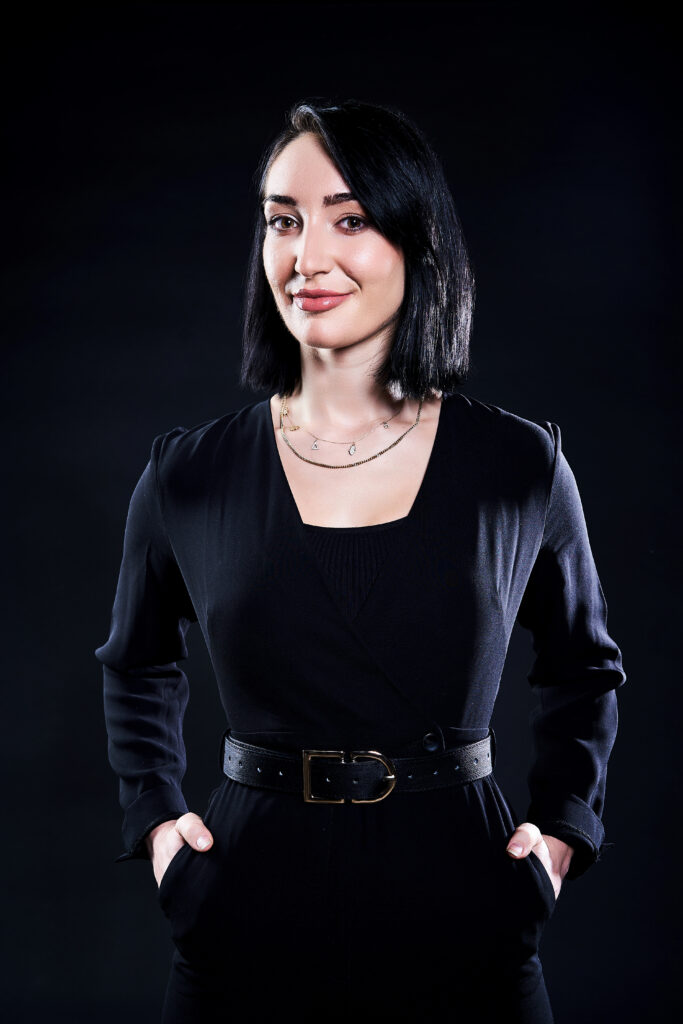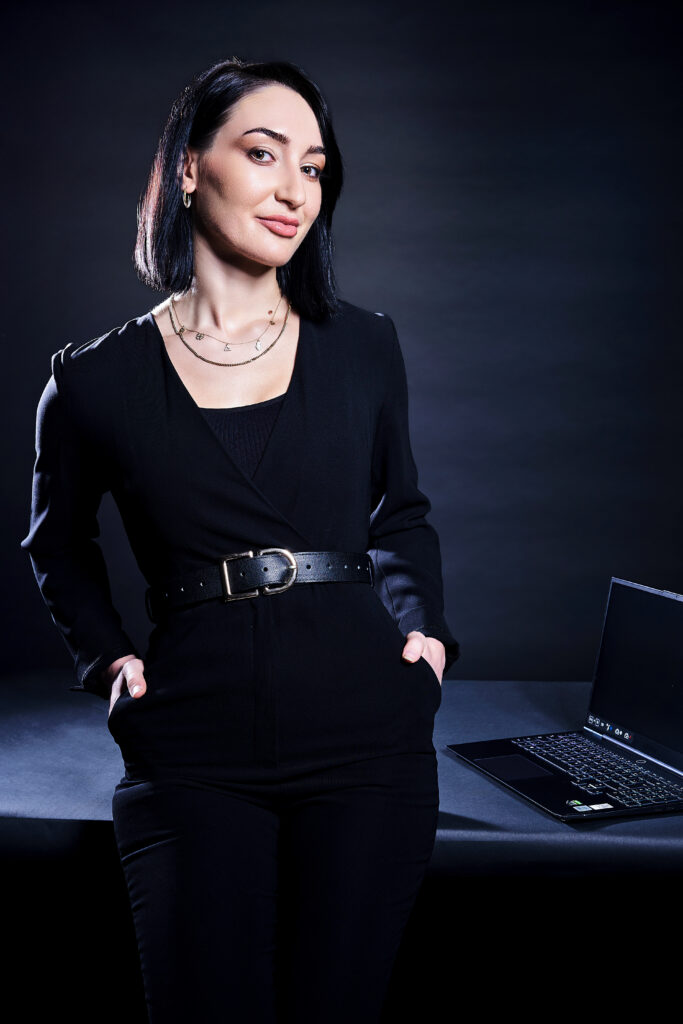Gresa Shala: Learning about life from machines

Powerful codes, grounding routines and inspiring role models – Gresa Shala talks about this with a euphoria that makes the otherwise quiet doctoral student beam. Artificial intelligence (AI), especially meta-learning, is „the thing that keeps me wanting to do research,“ says Gresa. In the Representation Learning Group at the University of Freiburg, she has found exactly the right place to give free rein to her thirst for knowledge. In this interview, I get to look behind the cool facade of a woman who has followed the call of AI across Europe.
Growing up in Kosovo, Gresa Shala was already curious as a child – at the time, she wanted to become a medical doctor. However, her path led her into the world of computer science and she completed a Bachelor’s degree in Computer Engineering in Pristina. A one-month visit to a research laboratory in Freiburg introduced her to the work of Professor Frank Hutter, who was conducting research into machine learning with his team. Gresa Shala’s interest was piqued and she applied for a research-integrated Master’s in Computer Science at the University of Freiburg. She is now in the middle of her PhD program, has already published two papers and remains enthusiastic about Freiburg and research.
This seemingly straightforward path to top-level research was not always easy for Gresa – she has worked hard to feel that she belongs in the male-dominated IT sector. „I used to struggle a lot with perfectionism and imposter syndrome,“ says Gresa, simultaneously acknowledging that the doubts came from outside influences. “Reflecting on my own experiences, I’ve observed this subtle bias in action, highlighting an ingrained difference in the way we recognize achievements based on gender.” She says it saddens her that so many young girls do not fulfill their potential. Who inspired her: „Chelsea Finn, without question,“ says Gresa, referring to a Stanford professor whose work sparked her interest in machine learning. „But there needs to be a lot more female representation in the IT sector,“ Gresa is certain. This would encourage „girls in STEM“, i.e. in scientific or technical professions.
The fact that she now understands the structural causes of her insecurities is thanks to a course in gender studies at the University of Freiburg. „It’s not your abilities that prevent you from becoming a mathematician, a doctor or whatever you want to be,“ she says. „The social patterns that shape you early on influence the path of your life and make you subconsciously believe that you were made for something else.“
For Gresa Shala, the passion for science overtook her internal struggles. As a result, she now travels to the Faculty of Engineering every day – preferably after a morning run through the Japanese Garden at Seepark – where her day-to-day research begins. What exactly does it look like? „Programming and looking at boring graphics,“ she laughs. Communication with the team is also important. „Have the courage to contribute your own ideas!“ is Gresa’s message to aspiring female scientists. On closer inspection, it becomes evident that although her computer codes and graphics are highly complex, they are not as boring as suggested.

„Learning how to learn“ – that is what meta-learning is all about. Gresa Shala explains it like this: „As babies, we are all very adaptable – with very little knowledge, we gradually conquer small tasks and build up a system of knowledge“. While in the human body this happens in the brain, machines have artificial neural networks. As a programmer, Gresa controls how the „machine brains“ learn and how the process can be optimized further, similar to a doctor who measures the brain waves of her patients. If something goes wrong, Gresa tries out a new configuration until it works. „Being stubborn helps,“ she says, meaning more than just the IT work itself.
What also aids her is balance. The doctoral candidate practices yoga, meditation and sport. The move from Kosovo was a success in pre-pandemic times and she felt right at home in sunny Freiburg. „As an introvert, I always find a place where I can switch off.“ If Gresa feels like meeting friends, she prefers to do so in the old town. As for her work-life balance, she says, „I’ve developed my routine through trial and error over the years“ – just like a programmer.
Portrait by Henrike Üffing
Henrike Üffing is studying for a Bachelor’s degree in Liberal Arts and Sciences at the University College Freiburg. She spent the last year in Canada and takes every opportunity to travel and change her perspective. During her studies, she does something with life sciences, outside of university she likes to do something with media. She gained her first journalistic experience at UniCROSS and SWR. Henrike likes music, people and flea markets.